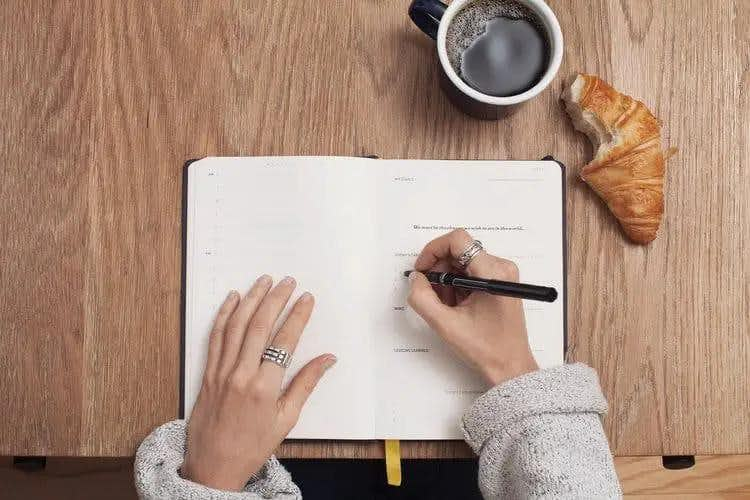August 25th, 2017

Whether you are a student who will be starting classes again in a few weeks; someone who will be swapping out summer hours for a regular schedule again; a parent who has kids starting school again and will have a change of routine yourself; or just someone who needs an organizational boost to their weekdays, this blog gives some ideas of what you can change to add efficiency to your days.
For most people, our daily lives seem to be very go, go, go. We build a routine and stick to it -- something usually involving waking up, going to work, coming home, getting stuff done around the house, and then finally relaxing. However, all of us have days where we feel tired, out of it and overwhelmed. Adding some change and different structure to your daily routine can be beneficial for working more efficiently and being more productive.
One of the things many people tend to struggle with is getting up early. There are few different things that can help make your morning routine something to look forward to. One helpful tip includes planning an exciting breakfast. Whether this is a new healthy meal you want to try or a favorite childhood recipe, planning a good breakfast can make you more eager to get out of bed and start your day.
Also, planning your important tasks for the day the night before can increase productivity. Setting goals before you go to bed can get you more excited about waking up and adds more purpose to your morning.
Another idea is to set your alarm and place it across the room from you. We all have those mornings where we press snooze more than we should. Placing your alarm in a spot where you have to physically get out of bed to turn it off, forces you to get up and get going.
Now that you have had a good night of sleep and are up, what should you focus on doing? As mentioned, planning your most important tasks for the morning can be a great motivator, so tackling your most important task at the beginning of your day can leave you feeling productive and can set the pace for the rest of the day.
Also, some people find working out in the morning a very effective method for increasing productivity throughout the day. This can help increase energy levels and decrease any stress you might have about the day.
Additionally, starting your work day by doing real work, and not checking your email has shown to be effective for work productivity. We all have those mornings where we get to work, check our emails, and then notice that an hour has gone by before we even start doing real work. Set time aside for your email, but start the day by working on actual tasks.
Lastly, make a general plan for what you would like your day to look like and what you want to accomplish today. Focusing on the list of goals your set for your day every morning will keep you focused on what is most important that day.
Having a productive day at work is not the only thing that will make your life easier. It is equally as important to end the day on a positive note at home. Make a plan for how you will relax once you get home. This can include things like watching your favorite show, eating dinner with friends or family, going for a walk, reading a book, etc. Having something to look forward to when you get home can help you work harder throughout the day at work.
Also, make a list of the things that you need to get done at home and do those first. Tackling these things first, while you still have some energy from the work day, will allow you to finish them in a timely manner and end the night relaxing.
Lastly, creating a bedtime routine can improve sleep patterns, and allow you to wake up early and start tomorrow just as productive as today was!
Written By: Bianca Miller, LCPC
At Clarity Clinic, we have highly trained staff who specialize in therapy and psychiatry services. To learn more about how we can support your mental health, call Clarity Clinic on (312) 815-9660 or schedule an appointment today.

Our Services
Virtual/Online CarePHP and IOPAdult PsychiatryChild & Adolescent PsychiatryAdult TherapyChild & Adolescent TherapyCouples CounselingFamily TherapyGroup TherapyPsychological TestingTranscranial Magnetic Stimulation (TMS)Resources
Refer a PatientCareersClinical Training OpportunitiesOur ProvidersFree Mental Health TestsCommonly Prescribed MedicationsLocationsBlogIn The NewsClarity Through CharityClarity for AllQuick Links
Patient PortalFAQsAccepted InsurancesContact us